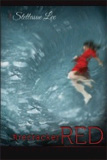Reviewed by Ramon Presson
Cardinal House Publishing
5001 Fremantle Court
Spring Hill, TN 37174
ISBN 978-0-9826472-0-2
2010, 117pp., $19.95
If Stellasue Lee were a storeowner and her poetry the products, hers would be a most inviting shoppe, the kind that quickens the pulse with anticipation upon entering while simultaneously quieting the heart. Lee’s poetry is generous in its hospitality. It invites browsing and sitting with the piece for a while.
Honestly, I’ve grown weary of rambling or disjointed verse that hopefully has some special or at least discernable meaning for the poet but is a labyrinth in the dark for the reader. I am not willing to go on a scavenger hunt inside a poem with senseless clues. A friend of mine said to me after reading a long poem in The New Yorker, “It must be good; I didn’t understand it.” Former Secretary of State Henry Kissinger, who invented monotone speech, once remarked, “If you’re famous and you bore people, they think it’s their fault.” Many poetry aficionados applaud elitist poetry for the same reason that we clap during an opera—we don’t understand a thing that was said, but these singers have amazing voices and apparently a good command of Italian.
Lee’s craftsmanship, however, invites you to pick up the piece, hold it, turn it over, examine the colors, feel the texture. In a recent interview with her local newspaper Lee said, “If there is any phrase in firecracker RED that’s not understandable I’ll fall on my sword. I wrote it so people could know me and be with me.” Lee knows how to serve her readers. Consider “Bits of Flying Glass”:
At last we realize that there’s no one
but ourselves to sweeten
the torrent of days, stacked
one against the other,
with no proper bookends
to keep them together…
There is a both a gentleness and an edge in this new collection of poems, most written following her move from Los Angeles to middle Tennessee. Lee proves to be a keen observer of the landscape and moments around her (the way the wind blows off the Pachaug River, Christmas lights taken down in February, a man blind in one eye welding without goggles) as well as the movements within, and she displays a remarkable ability to connect the outer and inner worlds. The poet holds light-heartedness and sadness in her two hands, a reflection of both her positive and hopeful spirit as well as her grief (for her parents and especially Jillian, her daughter tragically killed as a young adult in an auto accident).
Love and loss—the actual experience, or the inescapable risk of it—are present in many of Lee’s poems. And the risk of loss is also about the encroaching realization in later years of inching closer to one’s own finale. But that acute awareness does not gloom Lee’s poetry. Consider the delightful “For This, For Everything I’m Almost Out of Time”:
I-65 North going into Franklin, I pass by a family of buffalo.
The bull positions his hugeness between the freeway,the cow and the calf. That offspring almost as large as his sire.
Just to the right and beyond the buffalo, a white cross standsin a ditch, stabs upward toward infinity. The name, John Lunn,
clearly visible written in black on the shoulder of the cross.I always wave, Hi John, as the car speeds by at 75 mph.
This has been going on for eleven months now, ever sincewe arrived in middle Tennessee. I have caught a speeding
train. It races toward a birthday that is considered by mostrational beings to distinguish middle age from old age.
So plain is it to me that I am moving through these last yearsat an accelerated speed. It’s time I start making some contacts
you understand, who have already passed over to the other side.
While she is certainly attentive and responsive to the natural world around her as evidenced by affectionate nods to a gaggle of geese, a feasting squirrel, a beloved cat, or a female cardinal that flew into her glass window, Stellasue Lee is most insightful about the human heart and its longing for relationship. (While many know that her PhD is in literary studies, few are aware that Lee’s Master’s degree is in counseling.) Her honoring of the rhythms of life, the delicacies of the human spirit, and our core yearning for love make regular appearances throughout firecracker RED.
Reading this collection of poems reminds me of the angst I feel when enjoying the first tastes of an exquisite dessert. At first I’m so thrilled I’m inclined to devour the heaven in one sitting and suck the spoon clean. But then I’m conflicted because I know that the last bite brings its own grief. To indulge and devour or to sip and savor is always the dilemma when engaging great writing.
The final poem on page 117 is a master poet’s bow to an appreciative audience before slipping off stage. I was disappointed that she did not return for encores on subsequent pages. But I trust that Stellasue Lee will interpret the lingering applause as a plea for more in another book, another performance this grand.
